
IN THE AUTUMN of 1982, Tasmania Parks and Wildlife Service (PWS) ranger Hans Naarding was birdwatching near Togari in the state’s far north-west. After a tiring day in the field, he parked his LandCruiser near a crossroads to sleep. At about 2am, with rain thrumming on the thickly forested landscape, something woke him, and he pointed his torch out into the night.
“When I opened the window, the rain just poured in, and I shone the spotlight around at the end of the [torch] beam. Sure enough, it was a thylacine, right in front of the car, ” Hans told The Mercury newspaper, many years later.
Hans’s camera was out of reach, so he instead focused his efforts – and channelled his many years of experience observing wildlife in Africa and Australia – on mentally documenting the encounter, which lasted for about three minutes. He described a full-grown male, 6–7m from the vehicle, which for a period even held his gaze before it slipped off into the inky blackness.
“He was sopping wet…I estimated his weight, counted his stripes on his back, and I could see it was a very healthy male,” Hans recounted to the newspaper.
Given his extensive wildlife experience and expertise as a ranger, his sighting is regarded as one of the most credible of the past 40 years, with the then director of the PWS, Peter Murrell, describing it as “irrefutable and conclusive”. It would lead to a year-long, but ultimately fruitless, search by PWS rangers in the region for any further hints of the presence of the marsupial carnivore.
This story is from the {{IssueName}} edition of {{MagazineName}}.
Start your 7-day Magzter GOLD free trial to access thousands of curated premium stories, and 9,000+ magazines and newspapers.
Already a subscriber ? Sign In
This story is from the {{IssueName}} edition of {{MagazineName}}.
Start your 7-day Magzter GOLD free trial to access thousands of curated premium stories, and 9,000+ magazines and newspapers.
Already a subscriber? Sign In
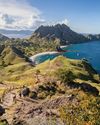
SULAWESI SENSATIONS
There are worlds within worlds and marvels untold waiting to be experienced on Indonesia's remote islands.
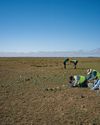
SEARCHING FOR AUSSIE DINOSAURS
Our understanding of where to find ancient life in Australia has been turned on its head by a new appreciation of the country's geology. Now the world is looking to our vast outback as the latest hotspot to locate fossils.
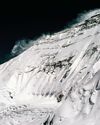
THE HARDEST NIGHT
The first Australian ascent of Mt Everest in 1984 is one of the great feats of mountaineering. Climbed by a small team semi-alpine style, with no bottled oxygen, via the Great (Norton) Couloir, it remains unrepeated 40 years later.
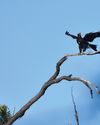
WEDGE-TAILED WONDER
The chance discovery of an eagle nest leads to an extended vigil observing normally hidden behaviours of one of nature's supreme winged marvels.
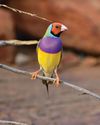
BURDENED BY BEAUTY
Northern Australia's Gouldian finch survives in huge numbers in cages around the world, but its wild population continues to struggle.
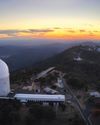
A TELESCOPE FOR A GOLDEN AGE
After a stellar 50 years as one of the country's major scientific assets, the AAT continues to play a major role in keeping Australian astronomy on the world stage.
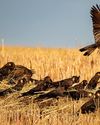
COCKY WHISPERING AT COOMALLO CREEK
This patch of remnant bush on the edge of the West Australian wheatbelt is a place loved by one of Australia's rarest bird species and the man who has studied the site for more than 50 years.

A PIONEERING PAIR
Louisa Atkinson and her mother, Charlotte, were among Australia's earliest authors, and pioneers in women's rights.

THE LONGEST WALK
Lucy Barnard is walking from Argentina to Alaska -the length of the Americas - on an extraordinary journey of endurance and adventure.
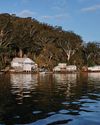
SECLUDED, BUT NOT ALONE
In an era of heightened social isolation, where many of us lead lonely lives, Dangar Island offers the chance to be part of a supportive, connected community.